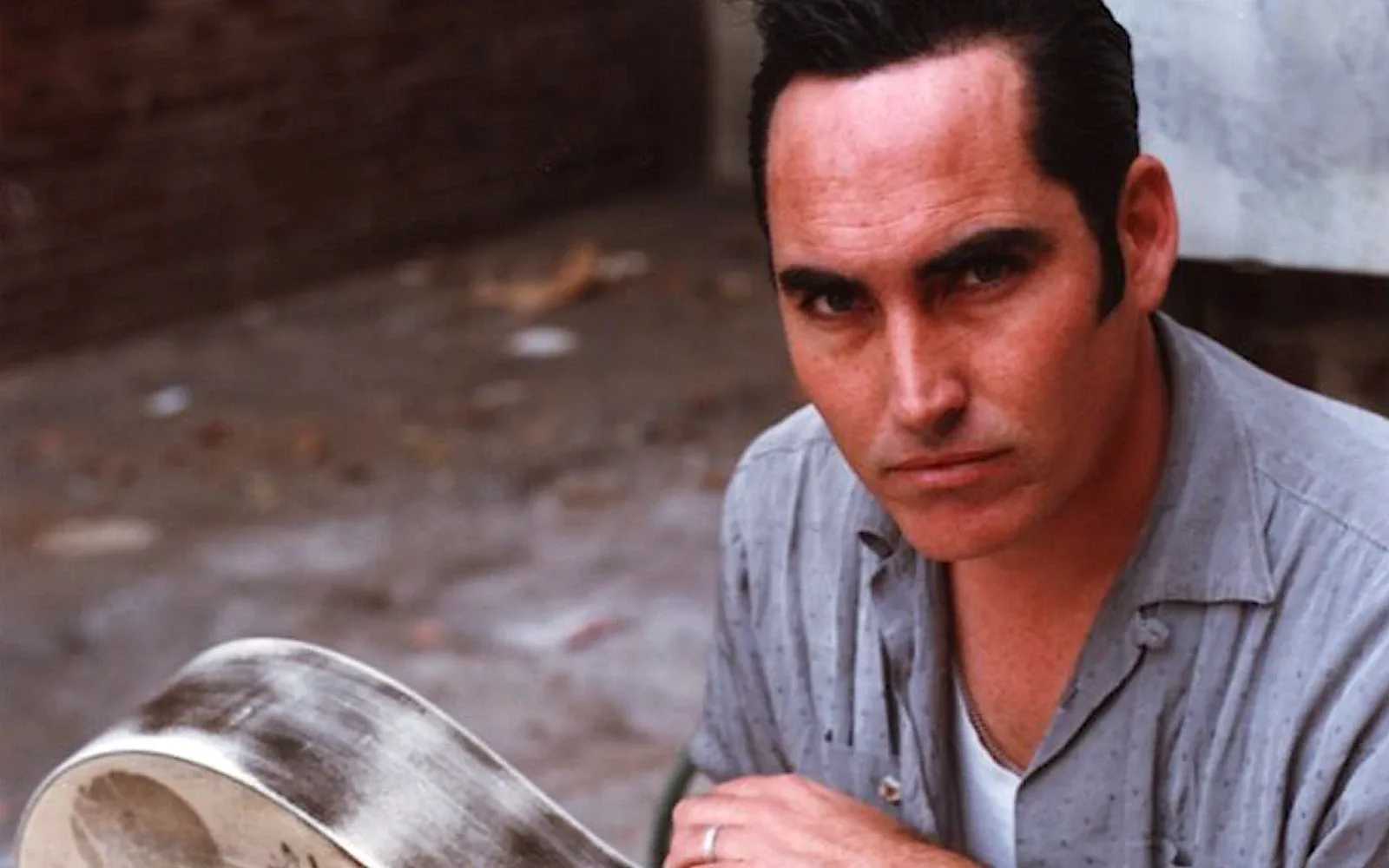Rest in Peace, Michael Knott

Just hours before I learned of Michael Knott’s death, a friend and I had been discussing Shaded Pain, the album that Knott released in 1987 with L.S. Underground, one of the many bands that he’d fronted since the early ’80s. Upon its release, Shaded Pain caused no small amount of controversy with its gothic rock sound and Knott’s raw lyrics, which tackled doubt, spiritual abuse, mortality, and lust — all topics that are often anathema in Church circles.
Shaded Pain was a dark, turbulent album that helped establish Knott’s reputation as the ultimate outsider artist, especially for the Christian music industry. It was a reputation that proved to be more than justified over the years. Knott was certainly flawed, mercurial, and unpredictable, prone to controversy, wild antics, and releasing albums of varying quality. He was also fearless and honest, a truly talented artist who sought out signs of grace in the seamier sides of life while confronting his own personal demons, including his long struggle with alcoholism.
A quick perusal of Knott’s Discogs profile reveals the sheer breadth and depth of the man’s work and influence. There are the numerous albums released under the various Lifesavers/L.S. Underground/L.S.U. monikers, including The Grape Prophet (a concept album inspired by the true story of a self-styled prophet taking over Knott’s Bible study), This Is the Healing, Cash In Chaos World Tour, and of course, Shaded Pain.
Knott released several solo albums (e.g., Screaming Brittle Siren, Rocket and a Bomb, Strip Cycle), performed in a couple of supergroups (Cush and Aunt Bettys), and collaborated with a veritable who’s who of indie/alternative Christian artists, including Terry Taylor, Gene Eugene, Brian Healy, The Choir’s Derri Daugherty and Steve Hindalong, and Starflyer 59. Whatever the project or album, though, Knott’s voice — which was equal parts rasp and croon but also capable of haunted wails and tortured screams — was unmistakeable, as were his incisive lyrics.
And if that weren’t enough, Knott was also the driving force behind Blonde Vinyl Records, one of the very first Christian indie labels. Although it only lasted a few years in the late ’80s and early ’90s — Knott was forced to shut down after his distributor went bankrupt in 1993 — Blonde Vinyl released a truly impressive slew of recordings from the likes of Breakfast With Amy, Dance House Children, Dead Artist Syndrome, Deitiphobia, Fluffy, Steve Scott, and Writ on Water, to name a few.
Despite its short lifespan, Blonde Vinyl’s diverse catalog remains unrivaled in the annals of indie-dom and paved the way for other labels like Tooth & Nail Records and Velvet Blue Music. (Ronnie Martin, who released several albums with his brother Jason as Dance House Children, posted some really beautiful Blonde Vinyl-related memories on Instagram.)
Reading through the many tributes that have appeared on social media, one thing becomes clear. For all of its darkness and eccentricity — or more likely, because of those things — Michael Knott’s music helped people. His willingness to explore the darker sides of life and faith while being transparent with his own flaws and struggles was both an inspiration and comfort to many who often found themselves at odds with the conservative evangelical Christian subculture. As one person wrote on Facebook:
I never knew you personally and, aside from the occasional mutual online conversation, we never spoke. But I knew your art. Your music. You wore your struggles out in public and so I knew those, too.
There were too many days to count, through high school, through college, and into adulthood, in which your music kept me sane. Kept me filled with hope. Reminded me that Grace and Mercy and Love were still in the world and still worthwhile.
That’s a sentiment undoubtedly shared by many, myself included.
If you’re unfamiliar with the world of indie/alternative Christian music, then the name Michael Gerard Knott probably doesn’t mean all that much to you. If you ever delved into that world, however, then you know his death leaves behind both a massive artistic void that can never be filled and a truly unparalleled body of work that speaks deeply to anyone who’s ever felt like an outsider themselves.
Update (Mar 14): Lars Gotrich has written an excellent obituary for NPR and a GoFundMe campaign has been launched to cover funeral expenses. Finally, members of The Prayer Chain and others have planned a tribute to Knott on April 6 which will hopefully be streamed for those of us unable to travel to Costa Mesa, California.